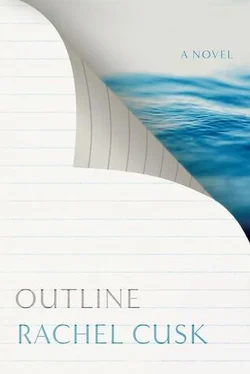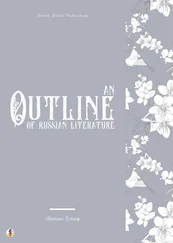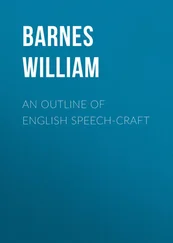‘It is hard,’ he said, ‘to imagine the world as it was in the heyday of my parents, in some ways so pleasurable and in others so callous. For example, my parents had a fifth child, also a boy, whose brain had been damaged at birth, and when the household moved they simply left him there on the island, in the care of a succession of nurses whose credentials — in those days and from that distance — I’m afraid no one cared to investigate too closely.’
He lived there still, an ageing man with the mind of an infant, unable, of course, to give his own side of the story. Meanwhile my neighbour and his brothers entered the chilly waters of an English public school education, learning to think and speak like English boys. My neighbour’s ringlets were clipped off, much to his relief, and for the first time in his life he experienced cruelty, and along with it certain new kinds of unhappiness: loneliness, homesickness, the longing for his mother and father. He rifled around in the breast pocket of his suit and took out a soft black leather wallet, from which he extracted a creased monochrome photograph of his parents: a man of rigidly upright bearing in a fitted sort of frock coat buttoned to the throat, whose parted hair and thick straight brows and large scrolled moustache were so black as to give him an appearance of extraordinary ferocity; and beside him, a woman with an unsmiling face as round and hard and inscrutable as a coin. The photograph was taken in the late nineteen-thirties, my neighbour said, before he himself was born. The marriage was already unhappy, however, the father’s ferocity and the mother’s intransigence being more than cosmetic. Theirs was a tremendous battle of wills, in which no one ever succeeded in separating the combatants; except, very briefly, when they died. But that, he said with a faint smile, is a story for another time.
All this time, the air hostess had been advancing slowly along the aisle, pushing a metal trolley from which she was dispensing plastic trays of food and drink. She had now come to our row: she passed along the white plastic trays, and I offered one to the boy on my left, who silently lifted up his gaming console with both hands so that I could place it on the folded-down table in front of him. My right-hand neighbour and I lifted the lids of ours, so that tea could be poured into the white plastic cups that came with the tray. He began to ask me questions, as though he had learned to remind himself to do so, and I wondered what or who had taught him that lesson, which many people never learn. I said that I lived in London, having very recently moved from the house in the countryside where I had lived alone with my children for the past three years, and where for the seven years before that we had lived together with their father. It had been, in other words, our family home, and I had stayed to watch it become the grave of something I could no longer definitively call either a reality or an illusion.
There was a pause in which we drank our tea, and ate the soft cake-like little biscuits that came with it. Through the windows was a purple near-darkness. The engines roared steadily. The inside of the plane had become darker too, intersected with beams from the overhead spotlights. It was difficult to study my neighbour’s face from the adjacent seat but in the light-inflected darkness it had become a landscape of peaks and crevices, from the centre of which rose the extraordinary hook of his nose, casting deep ravines of shadow on either side so that I could barely see his eyes. His lips were thin and his mouth wide and slightly gaping; the part between his nose and upper lip was long and fleshy and he touched it frequently, so that even when he smiled his teeth remained hidden. It was impossible, I said in response to his question, to give the reasons why the marriage had ended: among other things a marriage is a system of belief, a story, and though it manifests itself in things that are real enough, the impulse that drives it is ultimately mysterious. What was real, in the end, was the loss of the house, which had become the geographical location for things that had gone absent and which represented, I supposed, the hope that they might one day return. To move from the house was to declare, in a way, that we had stopped waiting; we could no longer be found at the usual number, the usual address. My younger son, I told him, has the very annoying habit of immediately leaving the place where you have agreed to meet him, if you aren’t there when he arrives. Instead he goes in search of you, and becomes frustrated and lost. I couldn’t find you! he cries afterwards, invariably aggrieved. But the only hope of finding anything is to stay exactly where you are, at the agreed place. It’s just a question of how long you can hold out.
‘My first marriage,’ my neighbour replied, after a pause, ‘often seems to me to have ended for the silliest of reasons. When I was a boy I used to watch the hay-carts coming back from the fields, so overloaded it seemed a miracle they didn’t tip. They would jolt up and down and sway alarmingly from side to side, but amazingly they never went over. And then one day I saw it, the cart on its side, the hay spilled all over the place, people running around shouting. I asked what had happened and the man told me they had hit a bump in the road. I always remembered that,’ he said, ‘how inevitable it seemed and yet how silly. And it was the same with my first wife and me,’ he said. ‘We hit a bump in the road, and over we went.’
It had, he now realised, been a happy relationship, the most harmonious of his life. He and his wife had met and got engaged as teenagers; they had never argued, until the argument in which everything between them was broken. They had two children, and had amassed considerable wealth: they had a large house outside Athens, a London flat, a place in Geneva; they had horses and skiing holidays and a forty-foot yacht moored in the waters of the Aegean. They were both still young enough to believe that this principle of growth was exponential; that life was only expansive, and broke the successive vessels in which you tried to contain it in its need to expand more. After the argument, reluctant to move definitively out of the house, my neighbour went to live on the yacht in its mooring. It was summer and the yacht was luxurious; he could swim, and fish, and entertain friends. For a few weeks he lived in a state of pure illusion which was really numbness, like the numbness that follows an injury, before pain starts to make its way through it, slowly but relentlessly finding a path through the dense analgesic fog. The weather broke; the yacht became cold and uncomfortable. His wife’s father summoned him to a meeting at which he was asked to relinquish any claim on their shared assets, and he agreed. He believed he could afford to be generous, that he would make it all back again. He was thirty-six years old and still felt the force of exponential growth in his veins, of life straining to burst the vessel in which it had been contained. He could have it all again, with the difference that this time he would want what he had.
‘Though I have discovered,’ he said, touching his fleshy upper lip, ‘that that is harder than it sounds.’
All this did not, of course, come to pass as he had imagined it. The bump in the road hadn’t only upset his marriage; it caused him to veer off on to a different road altogether, a road that was but a long, directionless detour, a road he had no real business being on and that sometimes he still felt himself to be travelling even to this day. Like the loose stitch that causes the whole garment to unravel, it was hard to piece back this chain of events to its original flaw. Yet these events had constituted the majority of his adult life. It was nearly thirty years since his first marriage ended, and the further he got from that life, the more real it became to him. Or not real exactly, he said — what had happened since had been real enough. The word he was looking for was authentic: his first marriage had been authentic in a way that nothing ever had again. The older he got, the more it represented to him a kind of home, a place to which he yearned to return. Though when he remembered it honestly, and even more so when he actually spoke to his first wife — which these days was rarely — the old feelings of constriction would return. All the same, it seemed to him now that that life had been lived almost unconsciously, that he had been lost in it, absorbed in it, as you can be absorbed in a book, believing in its events and living entirely through and with its characters. Never again since had he been able to absorb himself; never again had he been able to believe in that way. Perhaps it was that — the loss of belief — that constituted his yearning for the old life. Whatever it was, he and his wife had built things that had flourished, had together expanded the sum of what they were and what they had; life had responded willingly to them, had treated them abundantly, and this — he now saw — was what had given him the confidence to break it all, break it with what now seemed to him to be an extraordinary casualness, because he thought there would be more.
Читать дальше












